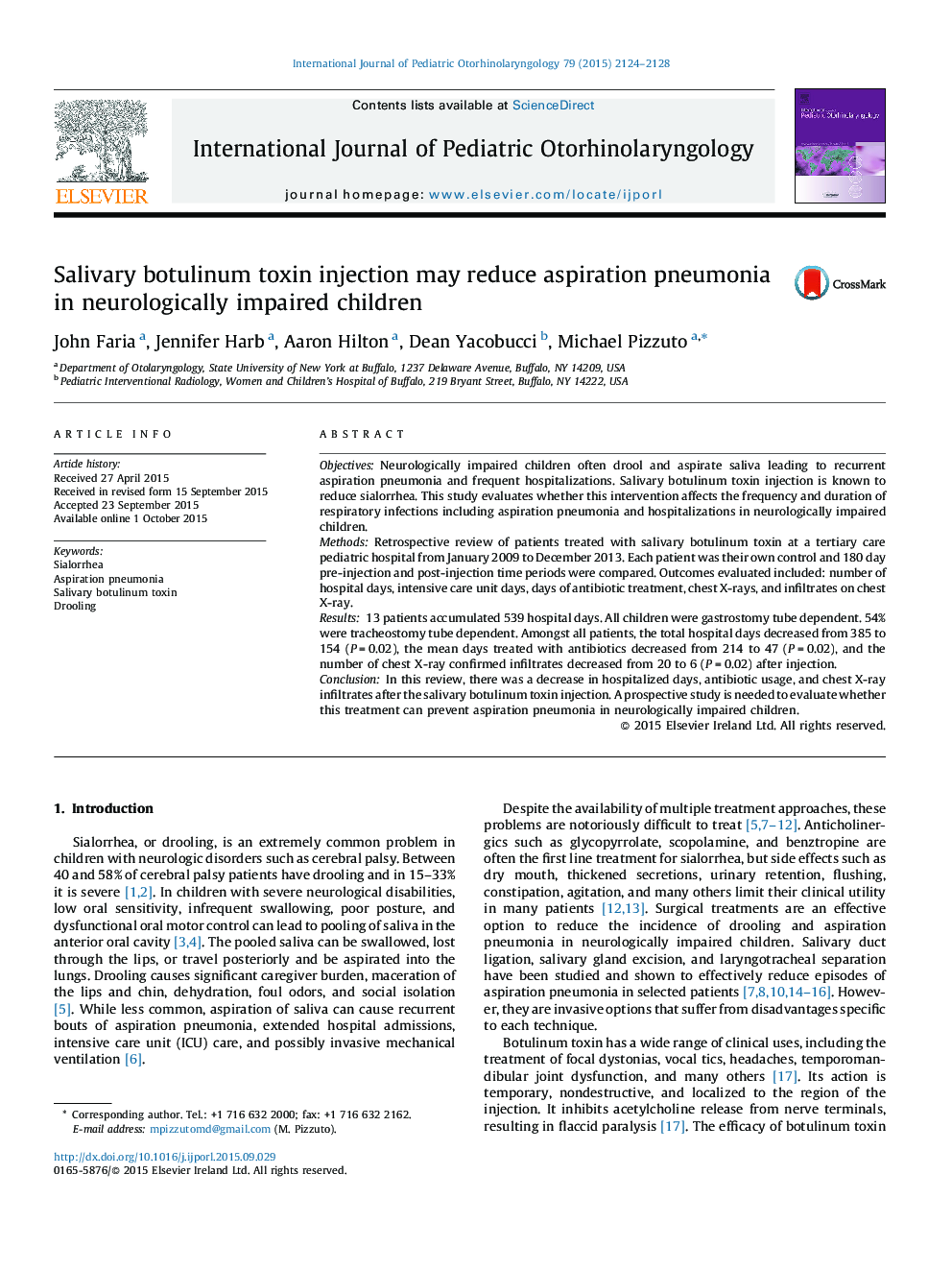| Article ID | Journal | Published Year | Pages | File Type |
|---|---|---|---|---|
| 4111572 | International Journal of Pediatric Otorhinolaryngology | 2015 | 5 Pages |
ObjectivesNeurologically impaired children often drool and aspirate saliva leading to recurrent aspiration pneumonia and frequent hospitalizations. Salivary botulinum toxin injection is known to reduce sialorrhea. This study evaluates whether this intervention affects the frequency and duration of respiratory infections including aspiration pneumonia and hospitalizations in neurologically impaired children.MethodsRetrospective review of patients treated with salivary botulinum toxin at a tertiary care pediatric hospital from January 2009 to December 2013. Each patient was their own control and 180 day pre-injection and post-injection time periods were compared. Outcomes evaluated included: number of hospital days, intensive care unit days, days of antibiotic treatment, chest X-rays, and infiltrates on chest X-ray.Results13 patients accumulated 539 hospital days. All children were gastrostomy tube dependent. 54% were tracheostomy tube dependent. Amongst all patients, the total hospital days decreased from 385 to 154 (P = 0.02), the mean days treated with antibiotics decreased from 214 to 47 (P = 0.02), and the number of chest X-ray confirmed infiltrates decreased from 20 to 6 (P = 0.02) after injection.ConclusionIn this review, there was a decrease in hospitalized days, antibiotic usage, and chest X-ray infiltrates after the salivary botulinum toxin injection. A prospective study is needed to evaluate whether this treatment can prevent aspiration pneumonia in neurologically impaired children.
